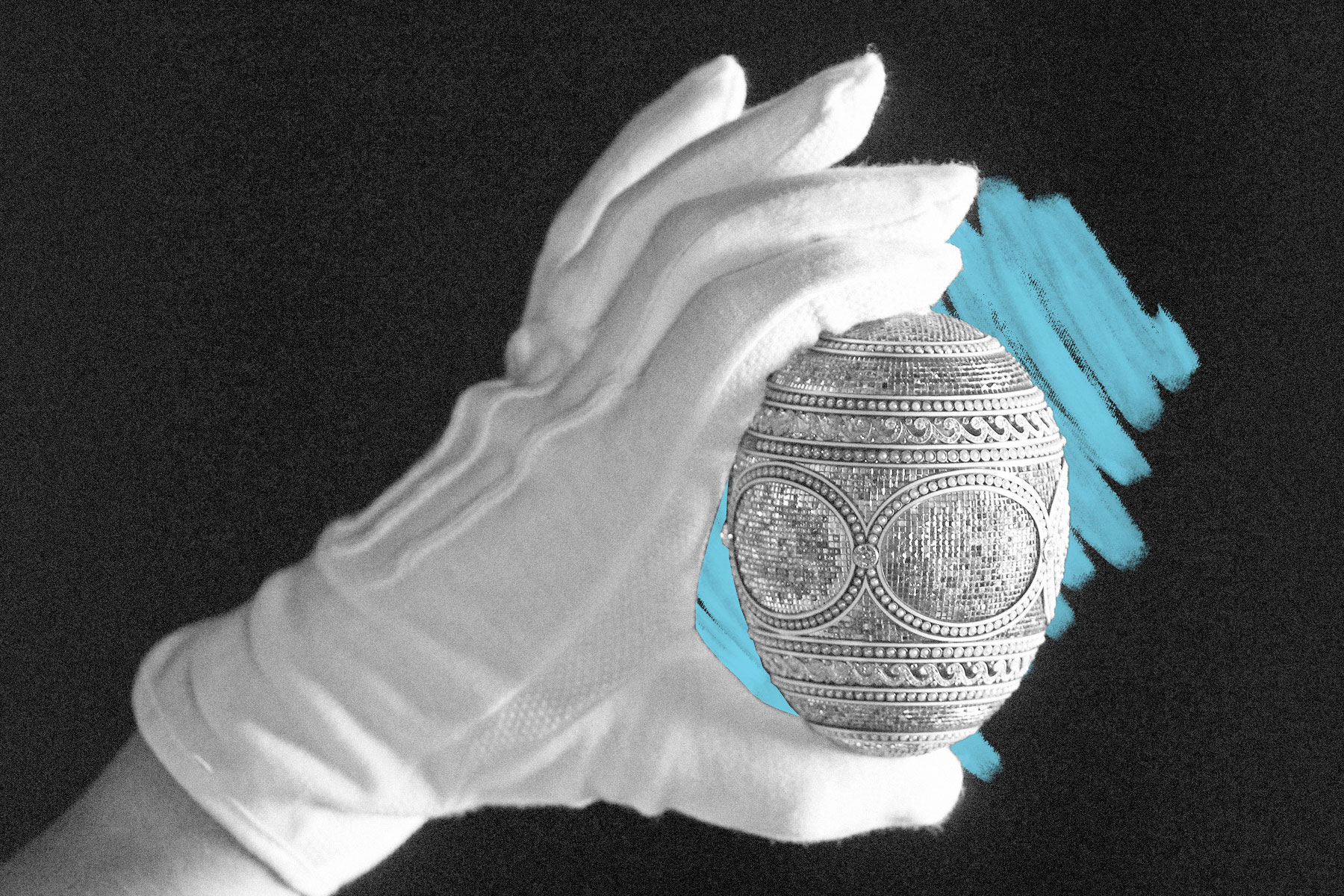The creator of Fabergé eggs made a Fabergé potato.
Even if you don’t know the name of Russian jeweler Peter Carl Fabergé, you’re probably familiar with his Fabergé eggs, most of which were made for the Romanov family in their last few decades as Russian rulers. Like most things associated with the Romanovs, these Easter eggs were over-the-top opulent, finely crafted with intricate diamond patterns, hidden treasures, and elaborate bases. One single egg is worth around $33 million today.
Fabergé didn’t just make eggs, however. His other designs, including fruits and flowers in tiny crystal vases, also fetch a high price. But among all his dainty, ornate work, one unexpected subject stands out: a potato, just under 4 inches long, in a realistic, irregular shape. Crafted around 1890, the Fabergé potato is a polished box carved from pink agate, decorated with a gold-mounted lid and a fleur-de-lis clasp. It’s one of his lesser-known works, but it bears the mark of the Russian jeweler Michael Perkhin, the master goldsmith Fabergé used to create his eggs at the time. Anything that’s a Fabergé is extremely valuable, whether it’s an enameled egg with a tiny, perfect gold replica of a palace inside, or a humble spud. Indeed, the potato box was sold by the auction house Christie’s for $93,750 in 2016.







